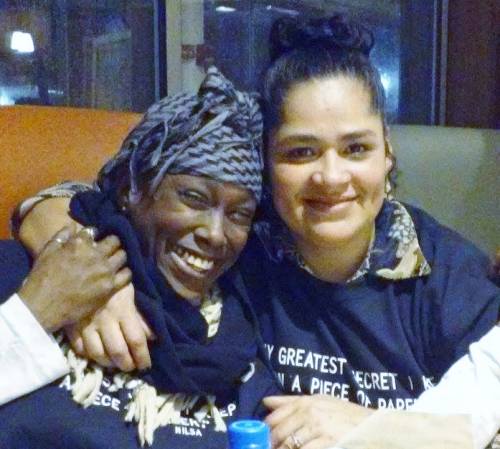Self-Development of People grant helps open doors for ex-offenders
 Olga Pedraza was looking forward to a new life and career, but her chances seemed to be fading. Jobs are scarce in Holyoke, Massachusetts, where Olga lives. This city of 40,000 people is filled with abandoned factories that once fueled the local economy. But the job search is especially tough for people like Olga who have a prison record. After serving time on a drug-related charge and beating drug addiction, she completed training to help others overcome substance abuse. Olga was excited to start this new career as a counselor, where she could draw from her own experience to aid in others’ recovery.
Olga Pedraza was looking forward to a new life and career, but her chances seemed to be fading. Jobs are scarce in Holyoke, Massachusetts, where Olga lives. This city of 40,000 people is filled with abandoned factories that once fueled the local economy. But the job search is especially tough for people like Olga who have a prison record. After serving time on a drug-related charge and beating drug addiction, she completed training to help others overcome substance abuse. Olga was excited to start this new career as a counselor, where she could draw from her own experience to aid in others’ recovery.
But the job required a driver’s license, which Olga had didn’t have. Her driving privileges had been revoked upon her conviction, and the state demanded more than $4,500 to have them restored, money she had no realistic hope of getting. However, rather than plunge into despair, she went to work to remove this burden both for herself and other people. She joined Neighbor to Neighbor, an organization that works with other groups to promote investment in jobs and education rather than prison. This coalition began a campaign called Jobs Not Jails that strives to change public policy to decrease incarceration rates and help reintegrate ex-offenders into society. Not long after Olga got involved, the coalition scored a major legislative victory: On March 20, 2016, Gov. Charlie Baker signed a law repealing automatic suspension of driving privileges for most drug offenses and abolishing the fine that accompanied it. Finally, Olga now works as a counselor.
“More than 7,000 lives are being transformed, thanks partly to a grant from the Presbyterian Committee on the Self-Development of People,” says Lena Entin, an organizer with Neighbor to Neighbor. “This victory means that stories like Olga’s will be repeated over and over again.” Self-Development of People (SDOP) works with grassroots groups in the United States and internationally that seek to change structures perpetuating poverty, oppression, and injustice. Your gifts to One Great Hour of Sharing enable SDOP to participate in the empowerment of people like Olga.
In Holyoke, your gifts are helping to stop the school-to-prison pipeline through changes in both policy and attitudes. “We’re educating people to shift public views on mass incarceration, so people will start calling for change,” Entin says. From 1973 to 2009, the US prison population grew from 200,000 to two million, and people of color are disproportionately incarcerated, so standing against mass incarceration is a matter of neighbors helping neighbors. One Great Hour of Sharing enables Presbyterians to extend neighborliness across the United States and around the world to impoverished and oppressed people. Give generously today and offer a helping hand to people in need.
Let Us Pray:
Liberating God, We thank you that you help oppressed people gain freedom.
Embolden us to work to change structures that restrict freedom
and keep people from experiencing the fullness of life you want for them.
May we celebrate our freedom in Christ by working for the freedom of others. Amen.